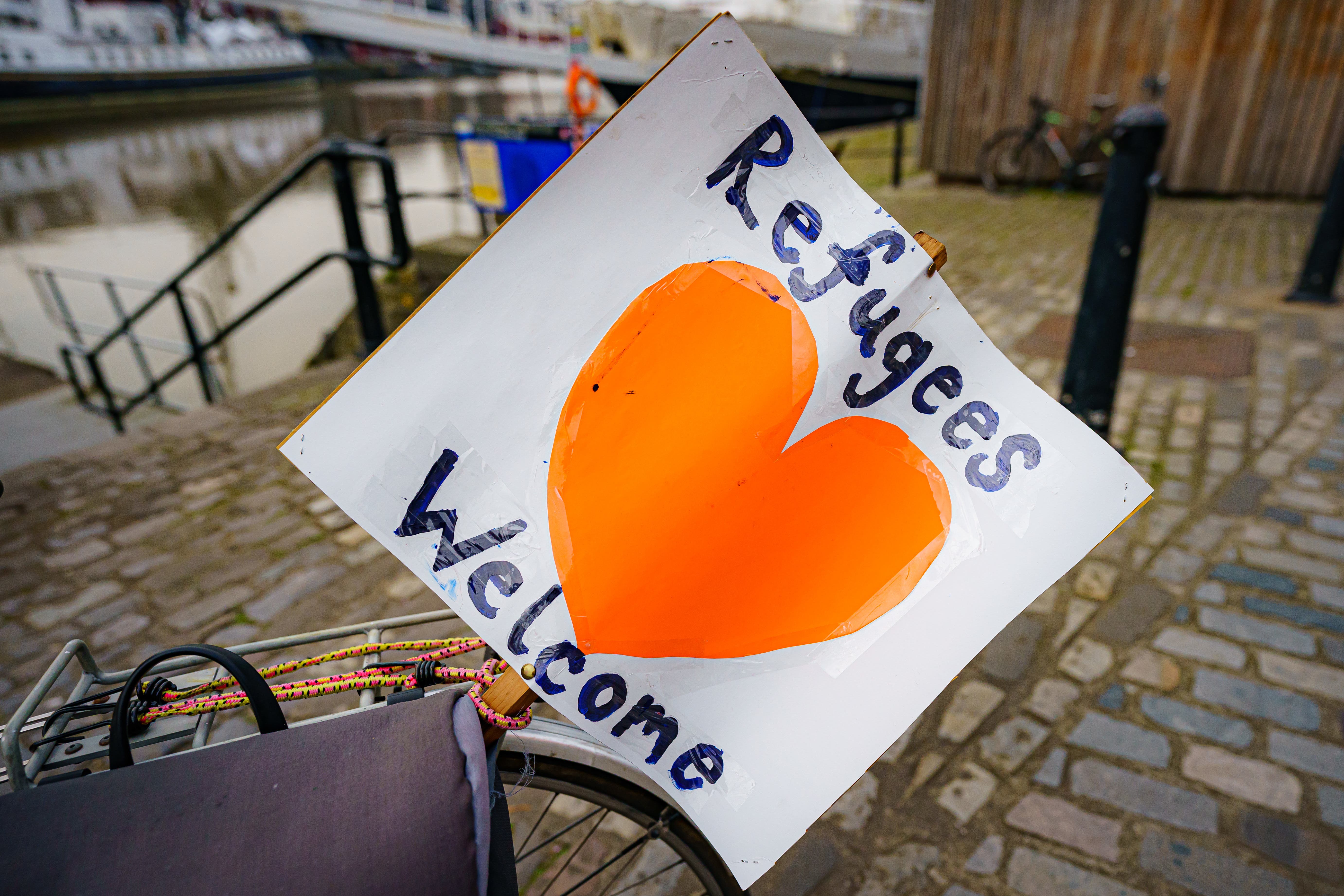Half of Homes for Ukraine sign-ups ‘would consider hosting other refugees’
Half of those registered on the sponsorship scheme would consider hosting refugees from other countries in a future refugee crisis, figures suggest.

Your support helps us to tell the story
From reproductive rights to climate change to Big Tech, The Independent is on the ground when the story is developing. Whether it's investigating the financials of Elon Musk's pro-Trump PAC or producing our latest documentary, 'The A Word', which shines a light on the American women fighting for reproductive rights, we know how important it is to parse out the facts from the messaging.
At such a critical moment in US history, we need reporters on the ground. Your donation allows us to keep sending journalists to speak to both sides of the story.
The Independent is trusted by Americans across the entire political spectrum. And unlike many other quality news outlets, we choose not to lock Americans out of our reporting and analysis with paywalls. We believe quality journalism should be available to everyone, paid for by those who can afford it.
Your support makes all the difference.Half of people registered on the Homes for Ukraine scheme would consider hosting refugees from other countries in a future crisis, new figures suggest.
Half of current, former or forthcoming hosts, and those who expressed interest by registering, would consider hosting refugees fleeing war and conflict elsewhere, the Office for National Statistics (ONS) said.
Some 38% said they would consider hosting someone fleeing a dangerous political regime, while 37% said this would be the case for those uprooted by natural disasters or climate change.
Overall, half said they would consider hosting refugees from other countries, 35% said they were not sure, and 15% said they would not consider this.
More support for sponsors, being able to choose the person they sponsor, and knowing how long they would be expected to host for upfront were common responses when asked what might encourage people to come forward in another refugee crisis.
It is the second time the ONS has published data on sponsors under the Homes for Ukraine scheme and it warned that the figures are experimental.
The sponsorship scheme allows Ukrainian nationals and their relatives to come to the UK if they have a sponsor who can provide accommodation for at least six months.
Earlier this year the ONS surveyed all UK adults registered with the scheme as of July 7 in collaboration with the Department for Levelling Up, Housing and Communities (DLUHC).
To follow up, it surveyed 8,770 adults had taken part in the initial survey and had agreed to be re-contacted, with 56% responding.
Almost three-quarters (74%) were currently hosting – with 98% hosting the same guests as in July.
The remainder had either previously hosted, have guests due to move in or would like to host, with a small proportion of those registered not planning to host at all.
The survey found that sponsors are struggling with the rising cost-of-living as well as facing barriers in helping their guests move on to independent accommodation.
Overall, three quarters said the cost of living was affecting their ability to provide support on the scheme – 18% said “very much”, 29% said “somewhat” and 30% said “a little”.
This week, the Government said it would increase the monthly “thank you” payments from £350 to £500 for hosts who continue for longer than a year “in recognition of their ongoing support amidst the rising cost-of-living”.
The most common difficulty reported by hosts was uncertainty about what will happen to guests after hosting ends (66%).
Most hosts (70%) said they have discussed with their guests what will happen after the current hosting arrangement ends, with one-quarter (25%) having agreed a plan.
Around one in five (22%) hosts would consider changing the current arrangement into a formal tenancy.
Some 69% of hosts whose guests are planning to move out said they were planning to move into independent accommodation, such as renting privately, while 11% said they were planning on returning to Ukraine.
Most sponsors reported experiencing barriers when helping guests look for private accommodation (81%).
The most common barriers were that their guests cannot afford to rent privately (69%) and cannot provide a guarantor (64%).